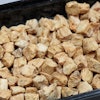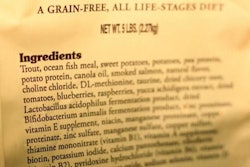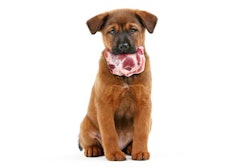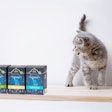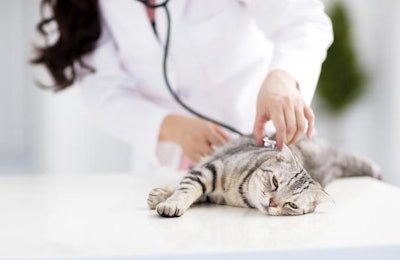
Therapeutic renal diet cat foods’ palatability ranked as the top reason UK cat owners stopped feeding kidney-health diets to their ailing felines in a survey conducted by Sarah Caney PhD, BVSc, specialist in feline medicine at Vet Professionals in Roslin, UK.
“I think that pet food companies do a great job of continuing to modify their diets to improve palatability and acceptance of the food – this should continue,” Caney told Petfood Industry. “Most owners in my study that had tried a renal food but weren’t currently feeding any of this reported that it was because the cat didn’t like the food.
“Anything companies can continue to do to encourage palatability and/or acceptance would therefore be helpful,” she said.
Therapeutic renal diet cat foods survey results
Out of 859 total cat owners that participated in the survey, 620 cared for cats with kidney problems. Of those, 123 reported not feeding a therapeutic formulation because their cat did not like the food, making that the most frequent reason given. In total, 571 cat owners reported feeding renal therapeutic diets to their cats (66.5 percent).
Effectiveness of veterinarian recommendations
Veterinarian’s recommendations for therapeutic renal diet cat foods were remembered by 90 percent of the cat owners in the survey. What’s more, cat owners who recalled a vet’s recommendations also had a higher rate of feeding kidney-health formulations to their cats suffering from renal disorders. Seventy-two percent of these owners continued using therapeutic renal diet cat foods, compared to 66.5 percent in the entire surveyed group.
Pet food companies and veterinarians may be able to benefit each other by frequently promoting therapeutic renal diet cat foods to owners of cats with kidney problems. Caney encourages vets to repeatedly remind patients’ owners to use specialized kidney-health cat food formulations.
“The recommendation needs to be reinforced and supported by repetition of the recommendation,” said Caney.
Caney’s study, “An online survey of dietary and phosphate binder practices of owners of cats with chronic kidney disease,” was published in the Journal of Feline Medicine and Surgery.


